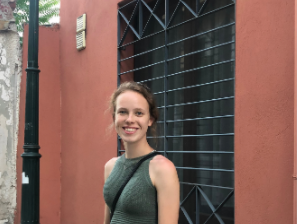Naomi Oreskes: Climate change is more than a scientific problem
March 29, 2019
The Baker-Nord Center for the Humanities, in partnership with local museums and educational institutions, welcomed Harvard University’s Professor of the History of Science and Affiliated Professor of Earth and Planetary Sciences Naomi Oreskes to campus last week as part of the annual Cleveland Humanities Festival. This year’s festival emphasizes nature, offering a variety of lectures, exhibitions and performances from local and visiting guests throughout March and April.
Oreskes’ lecture, “Is Climate Change the End? If so, the End of What?” emphasized that anthropogenic climate change would—and has already started to—mark the end of seven things: climate—as we know it, nature, the Holocene, science—as we know it, capitalism, liberal democracy and western civilization as a whole. Additionally, she made a point to emphasize that climate change is “not just a scientific problem,” but one for all of us.
Oreskes, along with historian Erik M. Conway, wrote a non-fiction book, “Merchants of Doubt,” about how scientists manipulate the truth to fit their narrative. More recently, the two colleagues published “The Collapse of Western Civilization,” a science fiction novel. Oreskes joked that if “[we] can’t persuade with facts, maybe we can persuade with fiction.”
She went on to outline the disastrous effects of climate change, citing extreme heat waves, the extension of hurricane season and the destruction of coral reefs around the world. Expanding on the physical effects of climate change, Oreskes discussed the quasi-controversial initiative to scientifically acknowledge the end of the Holocene geological epoch and the start of the Anthropocene. This shift would be a huge step in acknowledging the impact humans are having on the Earth and its atmosphere.
As for the downfall of science, Oreskes believes science as an enterprise has failed us. She dictated the long history in support of scientific exploration as a means for a stronger and more powerful nation. Beginning with Francis Bacon and his belief that “knowledge itself is power,” the same logic was used by scientists Roger Revelle and James Hansen, who truly thought that if politicians simply understand the reality of climate change, they would act.
Oreskes then proceeded to explain how scientists, herself included, view climate change as solely a problem in physical science and earth systems. While it is true that global warming is a result of increased greenhouse gases from burning fossil fuels and deforestation, the true cause, she said, is people. Consequently, climate change is an economic, social and political problem in addition to being a scientific issue.
Oreskes added that while generally people are the de facto cause of climate change, the blame is not shared equally. Rather, it is the wealthiest people—those predominantly from Europe, North America, Australia and Japan—whose lifestyles have, and continue to, lead to the most disastrous effects, often felt by the poorest people and nations. At the end of the lecture, Oreskes emphasized that we are simply running out of time to prevent this “train wreck,” and that we must acknowledge that climate change is “meaningful for [all of us], not just the polar bears.”



